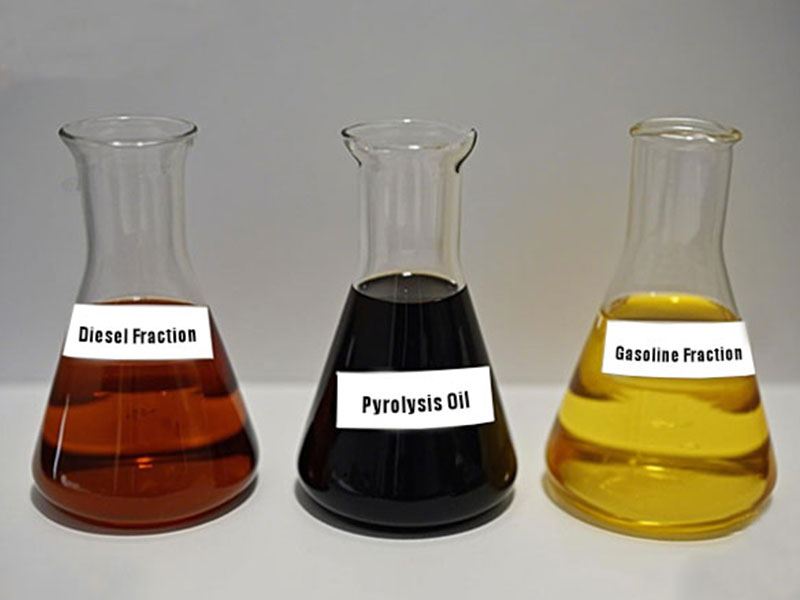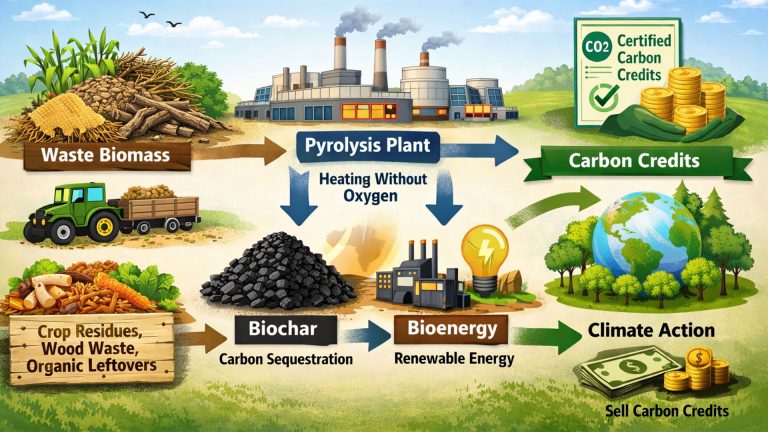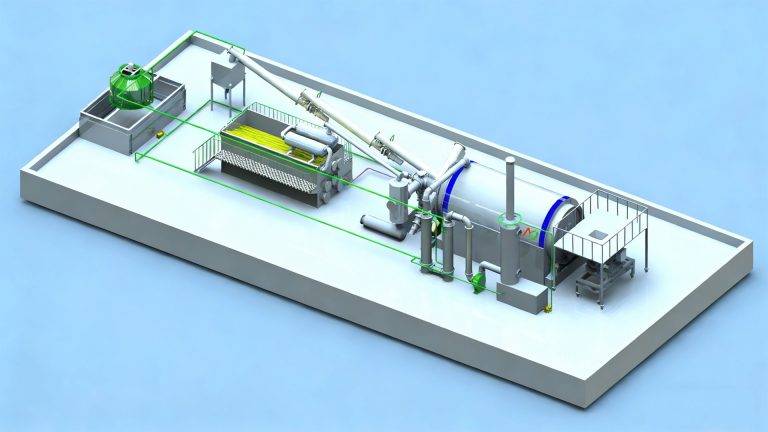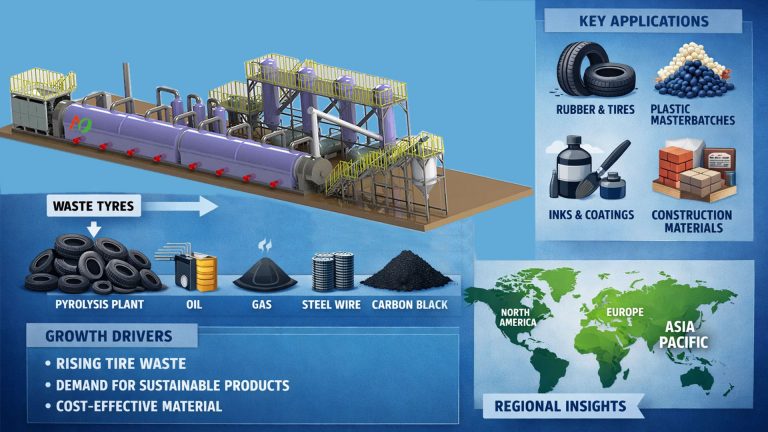Tire pyrolysis plant cost varies depending on factors such as equipment type and processing capacity. For example, continuous pyrolysis equipment has large processing capacity and high degree of automation, and its price is relatively high. Batch pyrolysis plants are relatively cheap, but their processing efficiency is not as good as that of continuous pyrolysis plants.
Small-scale pyrolysis plants process 10 tons of waste tires per day. The batch tire pyrolysis plant cost is between $40,000 and $60,000. The small continuous tire pyrolysis plant cost is between $240,000 and $288,000.
Medium- and large-scale pyrolysis plants process 50-100 tons of waste tires per day. They use continuous pyrolysis systems with a higher degree of automation. Medium- and large-scale tire pyrolysis plant cost is between $1.25-3.5 million.

Factors Affecting the Tire Pyrolysis Plant Cost
The pyrolysis system is the core equipment of the tire pyrolysis plant. The tire pyrolysis plant price varies depending on the material of the reactor, processing capacity and other factors. The reactor material is carbon steel, stainless steel can be selected.
Mingjie Group offers a variety of pyrolysis plants, including skid-mounted mini pyrolysis plant (MJ-2), batch pyrolysis plants (MJ-6, MJ-10, MJ-12, MJ-15), semi-continuous pyrolysis plant (MJL-15) and fully automatic pyrolysis plant (MLL-20, MLL-30).
In order to meet environmental protection requirements, we equip the pyrolysis equipment with waste gas treatment equipment, wastewater treatment equipment, dust removal equipment, etc.


The emission purification system is one factor affecting the waste tire pyrolysis plant cost. Each country has different requirements for flue gas emission purification. Mingjie Group can customize different purification solutions according to customer requirements.
In addition, we also provide pre-processing equipment, including tire cutters, crushers, magnetic separators, etc. They are used to dismantle, crush, separate steel wires and other pre-processing operations of waste tires. These pre-processing equipment meet the feeding requirements of continuous pyrolysis plants. They are also another factor that increases the scrap tire pyrolysis plant cost.
How to Recycle Waste Tires through Pyrolysis?
After the waste tires enter the pyrolysis reactor, the burner starts to heat the reactor. The reactor has good sealing to ensure that the waste tires are evenly heated. In an oxygen-free and high-temperature environment, the polymers in the tires will decompose to produce products – fuel oil, carbon black and combustible gas.

Pyrolysis Oil as Fuel Oil
Pyrolysis fuel oil is one of the core high value-added products of waste tire pyrolysis, with a typical yield of 40–45%. The oil and gas generated by pyrolysis are transported to the condensation system through the gas channel. Light oil and heavy oil can be recovered in different grades at different temperatures. The condensation system adopts a multi-stage cooling method to improve the recovery rate of pyrolysis fuel oil. Mingjie waste oil distillation plant can further purify pyrolysis oil into pure diesel or gasoline base oil.
Recycled Carbon Black rCB
Carbon black is the main solid product of pyrolysis, with a content of about 30-40%. The original pyrolysis carbon black is in powder or block form and contains impurities. The crude carbon black directly produced is generally used as a fuel substitute and has a lower market price. After refined processing, the recycled carbon black rCB can be reused to make rubber products, such as new tires, conveyor belts, and seals.
Non-condensable Gas Treatment
Non-condensable combustible gas is collected by the gas recovery device and can be used as fuel to heat the reactor. The flue gas generated by the burner in the heating system is purified by the desulfurization, denitrification and dust removal devices. Finally, the purified gas is discharged in accordance with environmental protection requirements.
As a waste tire recycling plant with great potential, the waste tire pyrolysis plant is of great significance in solving environmental problems and realizing resource recycling.



Tire Pyrolysis Products Price
Global prices for waste tire pyrolysis products vary depending on product type, quality, geographic region, and market demand.
Fuel oil prices range from $400-800/ton, and fuel oil prices closely track crude oil trends. Synthesis gas is often used for internal energy recovery, reducing operating costs. The calorific value of synthesis gas is equivalent to 0.5-0.8 tons of coal per ton of processed tires. Global steel prices range from $200-400/ton, and prices are related to global steel demand and energy costs.
Pyrolytic carbon black (PCB) global prices range from $300-1,200/ton, depending on purity. High-purity PCBs, such as Enviro recycled carbon black used by Michelin, sell for $800-1,200/ton. The EU circular economy policy has driven demand for sustainable materials. Pyrolytic carbon black prices in North America are rising due to increased use of PCBs in tire manufacturing and asphalt.
In Conclusion
The global tire pyrolysis products market has huge revenue potential, with fuel oil and pyrolysis carbon black being the main value drivers. Tire pyrolysis plant cost can achieve a fast payback by optimizing the tire pyrolysis process.




